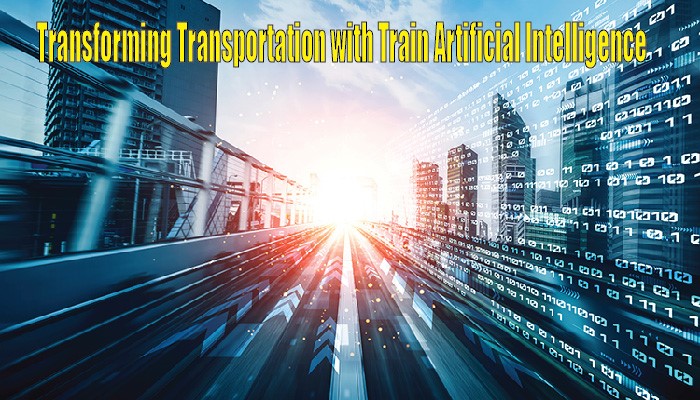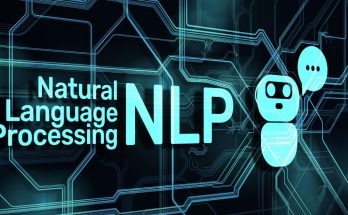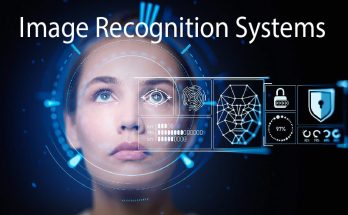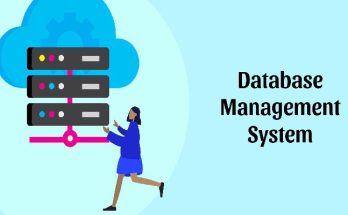The Future on Track: Transforming Transportation with Train Artificial Intelligence
We will discuss Transforming Transportation with train Artificial Intelligence. In the fast-evolving landscape of technology, artificial intelligence (AI) is making profound strides in various sectors, and one area that is seeing significant transformation is the realm of train transportation. The integration of AI in trains is not just about enhancing efficiency but also about redefining safety, sustainability, and passenger experience. In this article, we will delve into the Transforming Transportation with train Artificial Intelligence, exploring its applications, benefits, and the potential it holds for the future of rail travel.
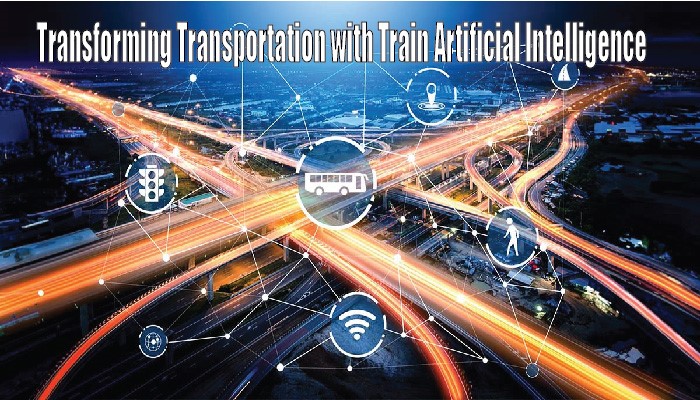
The Rise of Train Artificial Intelligence
Enhancing Safety Systems
Train accidents and collisions have been persistent challenges in the railway industry. AI is proving to be a game-changer in this regard by significantly enhancing safety systems. Machine learning algorithms can analyze vast amounts of data from sensors, cameras, and other sources in real-time to detect potential risks and take preventive measures. For instance, AI can predict equipment failures before they occur, allowing for timely maintenance and reducing the risk of accidents.
Optimizing Operations with Predictive Maintenance
Traditional maintenance practices often follow fixed schedules, leading to unnecessary downtime and increased costs. AI-driven predictive maintenance is revolutionizing this aspect of train operations. By analyzing historical data and identifying patterns, AI can predict when components are likely to fail, enabling operators to schedule maintenance precisely when it is needed. This not only reduces costs but also minimizes disruptions to train services.
Smart Infrastructure and Traffic Management
The integration of AI in train systems extends beyond the trains themselves to the entire railway infrastructure. AI algorithms can optimize traffic flow, monitor track conditions, and predict congestion points. This level of intelligent traffic management not only improves the efficiency of train schedules but also contributes to overall rail network optimization. Additionally, AI can help in the development of smart signaling systems that adapt in real-time to changing conditions, further enhancing safety and efficiency.
The Passenger Experience
Personalized Travel Services
AI is transforming the passenger experience by providing personalized services. From recommending preferred seating arrangements based on individual preferences to suggesting in-cabin entertainment options, AI can tailor the travel experience to meet the unique needs and preferences of each passenger. This not only enhances customer satisfaction but also creates opportunities for additional revenue streams through personalized service offerings.
Real-Time Information and Communication
Train AI is making real-time communication between passengers and operators a reality. Smart systems can provide passengers with up-to-the-minute information about their journey, including delays, estimated arrival times, and alternative routes. AI-driven chatbots and virtual assistants further facilitate communication, allowing passengers to make inquiries, receive updates, and address concerns seamlessly during their travel.
Sustainability and Efficiency
Energy Optimization
Sustainability is a critical focus in the transportation sector, and AI is playing a pivotal role in making train travel more environmentally friendly. AI algorithms can optimize energy consumption by adjusting the speed and power usage of trains based on real-time conditions. This not only reduces the carbon footprint of rail travel but also contributes to operational cost savings.
Route Optimization for Fuel Efficiency
AI-driven route optimization is another key aspect contributing to the sustainability of train transportation. By analyzing factors such as track conditions, gradients, and weather patterns, AI algorithms can suggest the most fuel-efficient routes. This not only reduces fuel consumption but also lowers emissions, aligning the railway industry with global efforts to address climate change.
Challenges and Considerations
While the integration of AI in train transportation holds immense promise, it also comes with its set of challenges and considerations. Cyber security is a significant concern, as AI systems become potential targets for malicious attacks. Ensuring the robustness and security of AI algorithms and systems is crucial to maintaining the integrity of train operations.
Furthermore, the ethical implications of AI in decision-making processes need careful consideration. As AI systems take on more responsibilities in managing train operations, questions arise about accountability and transparency. Striking the right balance between automation and human oversight is essential to build trust in AI-driven train systems.
The Future Outlook
As train artificial intelligence continues to evolve, the future looks promising for the railway industry. The ongoing development of advanced AI algorithms, coupled with the integration of emerging technologies such as 5G connectivity and the Internet of Things (IoT), will further enhance the capabilities of AI-driven train systems.
Governments, railway operators, and technology companies must collaborate to establish standardized frameworks and regulations for the deployment of AI in train transportation. This will not only ensure the safety and reliability of AI systems but also foster innovation and interoperability across different railway networks.
Conclusion:
Train artificial intelligence is ushering in a new era for rail travel, promising enhanced safety, personalized passenger experiences, and sustainable operations. As the railway industry embraces the transformative power of AI, it is essential to address challenges, establish ethical guidelines, and pave the way for a future where intelligent trains redefine the way we think about transportation. The journey ahead is exciting, and with the right strategies in place, the integration of AI will undoubtedly propel train transportation into a smarter, safer, and more sustainable future.
